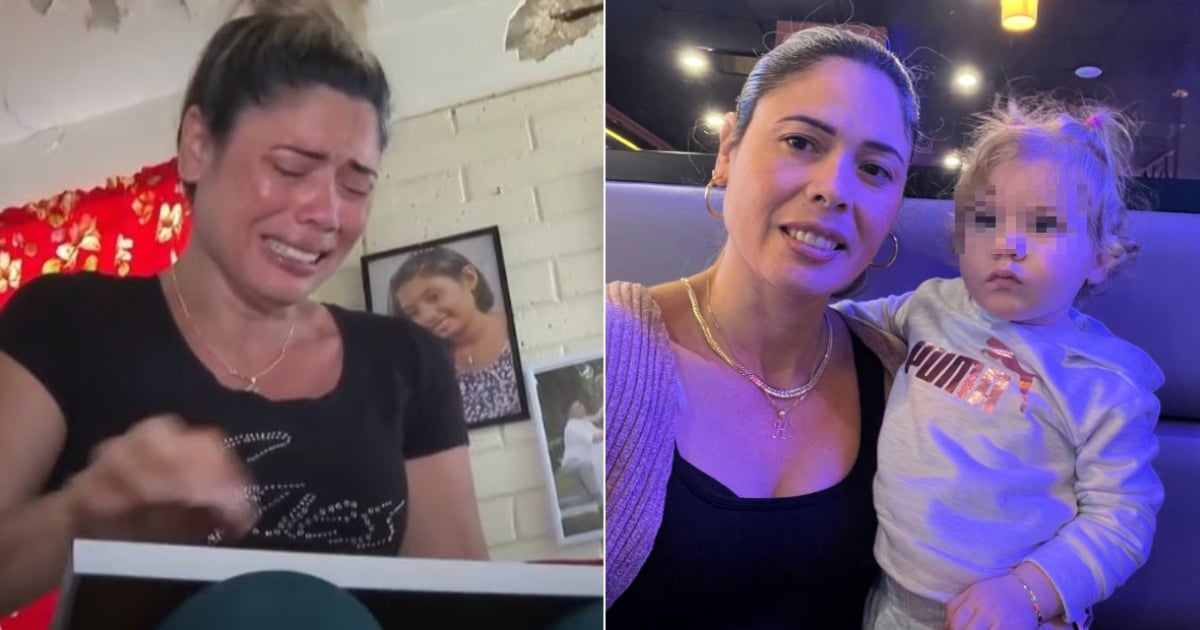Heidy Sánchez, a 44-year-old Cuban mother who was recently deported from the United States, has reached out to President Donald Trump with a heartfelt plea to reunite with her husband and 17-month-old daughter. In a video shared on Instagram, Sánchez, fighting back tears, directed her message to the White House: "To the president (Trump), who has a family, I say that he believes in God, and I also believe in God... I would like him to put his hand on his heart and, please, help us reunite our family," she said, visibly moved. "My baby is little, she needs me."
Since her return to Havana, Heidy tirelessly walks up to ten times a day from her parents' home to an area with better internet coverage, hoping to soothe her baby through video calls. The calls often end with both mother and child in tears. "I am physically and mentally shattered," she expressed in an interview with AP. "My world has collapsed, and my life feels over."
While Sánchez desperately seeks a signal to connect with Kailyn, her daughter in Tampa cries in her father's arms, reaching out to touch and kiss the screen showing her mother's face. Carlos Yuniel Valle, her husband, recounts how their daughter reaches out for her mother, trying to caress her face on the screen. He is now shouldering the parenting and household duties alone, missing work to care for their child and fearing the loss of financial stability.
Administrative Hurdles: A Story of Setbacks
Heidy arrived in the United States in 2019 via the southern border, where she received an I-220B document, a supervision order allowing her to remain in the country while her deportation process was pending, contingent on certain conditions. In April, she attended an ICE appointment in Florida, expecting a routine procedure to adjust her immigration status. Instead, she was detained and deported to Cuba two days later.
A nursing mother and wife to a U.S. citizen, Sánchez had been employed as a home health aide. She had no criminal record and was complying with ICE's requirements.
Political Reactions, Legal Efforts, and an Online Campaign
The case has garnered attention from civil rights organizations and U.S. lawmakers. Kathy Castor, a Democratic Congresswoman from Tampa, met with Carlos Valle and filed a humanitarian parole request with the Trump administration on behalf of Sánchez. "We are pursuing every possible avenue to reunite this family," Castor stated, criticizing the deportation as "illegal actions" and a "political family separation policy."
The plea has sparked solidarity on social media, prompting a campaign to collect signatures in support of her humanitarian visa request. "Heidy has no criminal record and poses no threat to public safety. She is a loving, law-abiding mother," reads the petition addressed to the U.S. Citizenship and Immigration Services (USCIS). "We respectfully urge you to use the humanitarian tools available under U.S. immigration law, such as humanitarian parole or other forms of discretionary relief, to allow her to return home," it continues.
This family's plight has captured the attention of media outlets and international agencies.
A Forced Return with Lingering Effects
Living a nightmare after her life was upended, Heidy Sánchez finds herself torn from the child she nursed since birth, unable to work in Cuba, and without the security she had built in the United States. As a symbol of families fractured by immigration policy, she wakes each day hoping her message reaches Washington, restoring her life with her daughter and husband. "They tore my daughter from my arms," laments this Cuban mother from Havana.
Insights into the Cuban Deportation Case
What prompted Heidy Sánchez's deportation from the United States?
Heidy Sánchez was deported after attending an ICE appointment in Florida, where a routine procedure to adjust her immigration status unexpectedly led to her detention and subsequent deportation to Cuba.
How has the deportation affected Heidy Sánchez and her family?
The deportation has left Heidy Sánchez separated from her young daughter and husband, causing emotional distress and financial strain as her husband struggles to manage household responsibilities alone.
What actions are being taken to help reunite Heidy Sánchez with her family?
Efforts are underway by civil rights organizations and lawmakers, including a humanitarian parole request filed by Congresswoman Kathy Castor, along with a social media campaign to gather support for her return.
